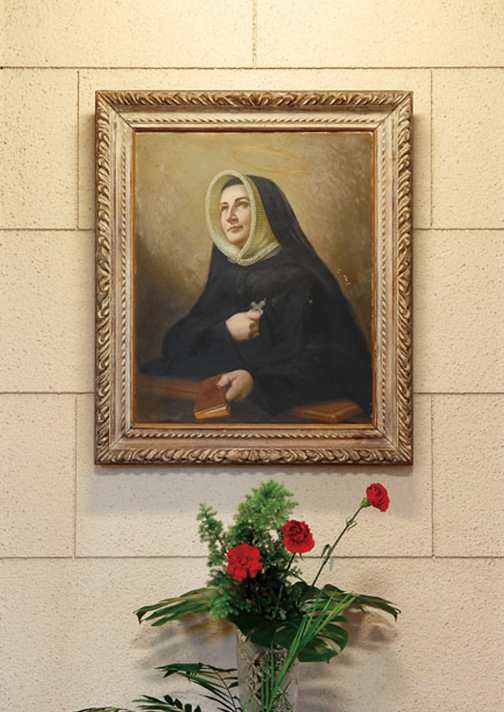Educational Principles

(1779 – 1865)
The University of the Sacred Heart bases its educational principles on the spirit of Madeleine Sophie Barat who founded the first Sacred Heart School in France in 1801. This educational philosophy aims at learning from the Heart of Christ that unique love which he shows to each person. Inspired by this love, students will seriously pursue the studies which they have chosen, and will deepen their involvement with the world as a result of their learning. This energizing power (called the “Spirit of the Sacred Heart”) is common to all Sacred Heart Schools throughout the world.
The following educational principles serve to guide present and future decisions and actions concerning the education offered at the University of the Sacred Heart:
- The University aims to develop in its students, through their quest for higher learning and specialization,
– the creativity that opens up new vision,
– the power of critical thinking,
– the ability to become fully educated, well-rounded human beings. - The University aims to foster in its students a sense of their own identity and, at the same time, a global awareness that will enable them to become involved in important events and issues with a broad perspective, sensitivity, flexibility, and the practical ability to put their awareness into action.
- The University aims to develop in its students powers of thinking and sound judgment that will enable them to respond to a rapidly changing world and equip them with the verbal and intellectual abilities necessary to be deeply engaged, not only in the world of today, but also in shaping the future.
In order to realize these objectives, the University — faculty, staff, students and alumnae — are all joined in spirit forming the Sacred Heart Educational Community. The administration, faculty, and staff endeavor to promote and develop high standards of research and learning. Students and alumnae, by making use of the education they have received and the Sacred Heart spirit fostered during their student life, endeavor to contribute to society in responsible and positive ways both locally and globally.
The Three Educational Policies
The University of the Sacred Heart has instituted the following three policies so as to bring our principles to fruition.
 Diploma Policy
Diploma Policy
Based on its foundation philosophy, the University of the Sacred Heart will graduate students who possess extensive general knowledge and high standards of expertise, logical minds and flexible and precise judgement, and the ability to communicate their opinions and the capacity to contribute to the global society.
 Curriculum Policy
Curriculum Policy
Liberal arts education is highly valued at the University of the Sacred Heart. Students take General Subjects and other introductory courses in the Basic Program in the first year, and then decide on their major field of study in the following year. In each department and major, students will nurture their ability of communication and enhance their level of expertise through seminar-oriented curriculum and the writing of their graduation thesis.
 Admission Policy
Admission Policy
The University of the Sacred Heart hopes that applicants will share our philosophy and comprehend the curriculum policy and educational goals and content of each department and major. It also hopes that applicants possess the three elements of academic ability (basic knowledge and skills; ability to think, judge and express themselves; and independence, diversity, and cooperation) required to complete the university’s educational program, all of which are equivalent to high-school graduate level.
Therefore, we are looking for students who meet the following criteria:
- Students who have their own opinions and values, and who wish to acquire the ability to express themselves in their own words and gain the understanding of those around them.
- Students who wish to acquire the habit of learning on a daily basis and expand their world through new knowledge and experiences.
- Students who are aware of the needs of society and people around them, and who wish to acquire the ability to contribute to society using heads, hearts and hands.

